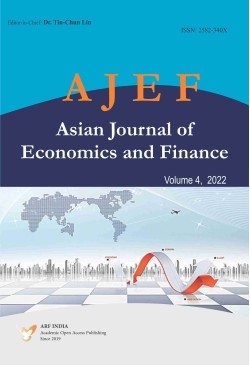The aim of this research is to determine if the share prices of 10 listed energy companies in the Philippine Stock Market are correlated with the wholesale electricity prices at the Wholesale Electricity Spot Market (WESM) and the prices of fuel input such as coal, natural gas, and crude oil. With significant correlations, the next phase is to formulate significant models in order to account for the significant association and the effect of the wholesale electricity prices and fuel input prices on the share prices of these 10 listed companies. With the enactment of Republic Act 9136 known as the Electric Power Industry Reform Act (EPIRA) in 2001, the Philippine power industry changed from a stateled model to a free market model. The 10 listed companiesare Aboitiz Power Energy, Alsons Consolidated Resources, Basic Energy Corporation, Energy Development Corporation, First Gen Corporation, First Philippine Holdings, Salcon Power Corporation, Manila Electric Company, Phinma Energy, and Vivant Corporation. The spirit behind the reform act is to patch up the profuse bleeding of the national government from the debts contracted by the government of Ferdinand Marcos in behalf of the National Power Corporation (NPC), a stateowned and controlled corporation, which was tasked to generate power and transmit it through its high voltage lines to cooperatives and industrial users. The EPIRA Law aims to perpetuate a power industry that could sustain itself in the midst of an expanding demand for electricity through the private sector. In order to sustain this, these companies should have continuous capitalization in the midst of competition as envisioned in a freemarket model. This research found significant correlations and significant models in regard to the effect of wholesale electricity prices and fuel price input on the share prices of 10 generating companies listed in the Philippine Stocks Exchange.
Keywords: WESM, Wholesale Electricity Prices, Ex ante, Ex post, EPIRA Law, Share Prices.
JEL Classification: G11, G13, G17
Percival S. Gabriel (2022). Modelling the Effect of Wholesale Electricity Prices at WESM and the Prices of Fuel Input in the World Market on
the Share Prices of Listed Energy Companies in the Philippine Stock Market. Asian Journal of Economics and Finance. 4(2), 235-266.
